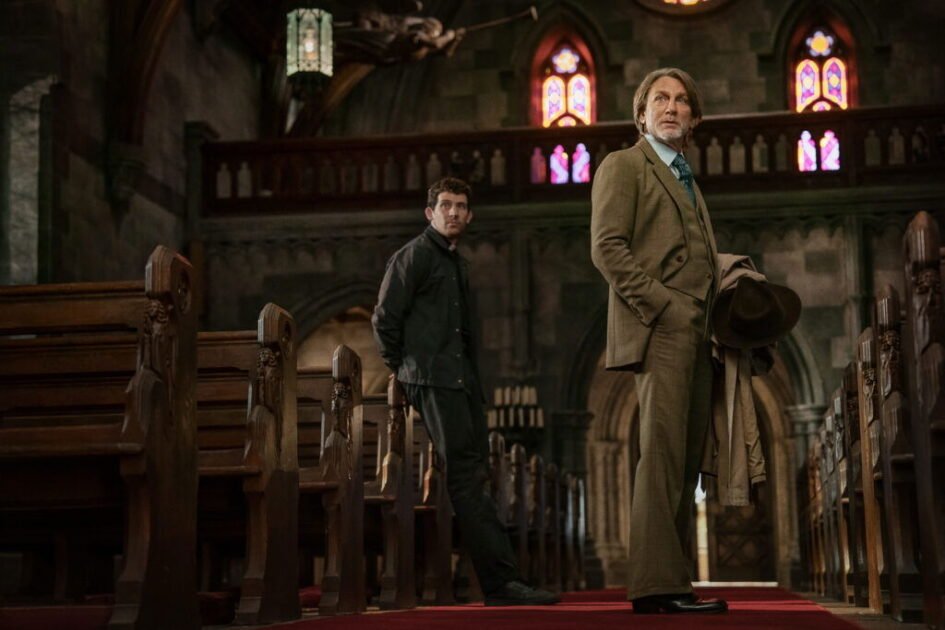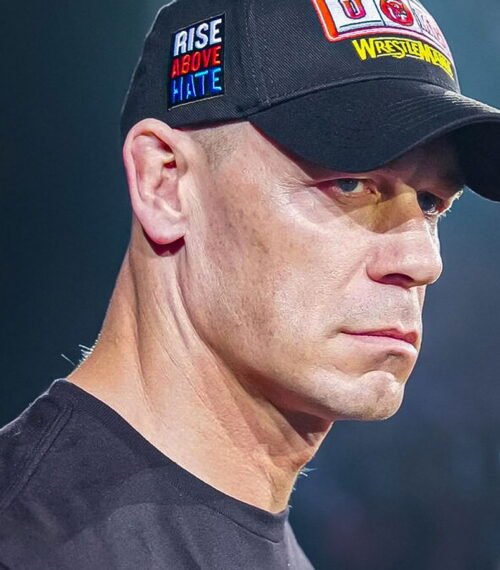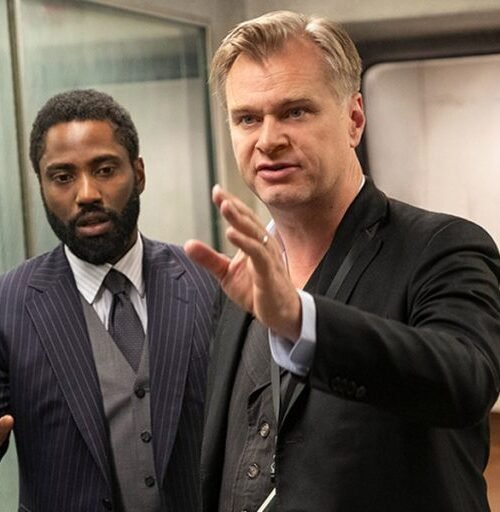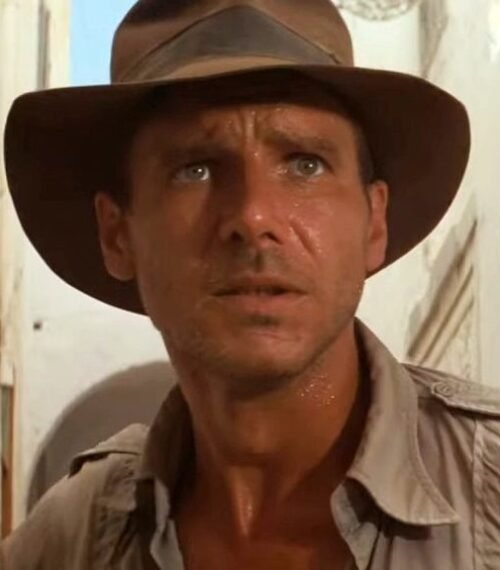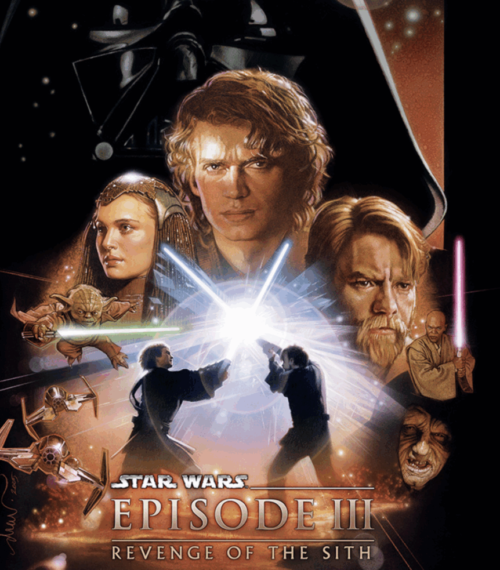I believe the best approach to a whodunnit should always be done with the awareness that its value lies in the pursuit and the why — the whydunnit — rather than the presumption of guessing the killer before the detective. If the film is a cinematic treasure hunt, the prize isn’t the answer, but the enjoyment of witnessing the choreographed dance of motives, character architecture, and, crucially, the thematic payoff that gives meaning to the chaos. It was with this mindset that I prepared for Wake Up Dead Man: A Knives Out Mystery, armed with moderate expectations but knowing that this is a genre I particularly love, helmed by a creator, Rian Johnson (Star Wars: The Last Jedi), and a cast I deeply admire.
Johnson, who writes and directs, makes his most ambitious and sober tonal shift within the now-trilogy, leaving behind the sunny satire of Glass Onion and returning to a more contained, gothic setting. The movie places Detective Benoit Blanc (Daniel Craig, No Time to Die) within a parish community in New York State, led by the charismatic yet tyrannical Monsignor Jefferson Wicks (Josh Brolin, No Country for Old Men), who’s murdered in a way that appears to be an “impossible crime” — or even a miracle. The narrative focus, however, initially falls on the young priest, Rev. Jud Duplenticy (Josh O’Connor, Challengers), the newest element in the parish and, conveniently, the primary suspect.
Wake Up Dead Man: A Knives Out Mystery review
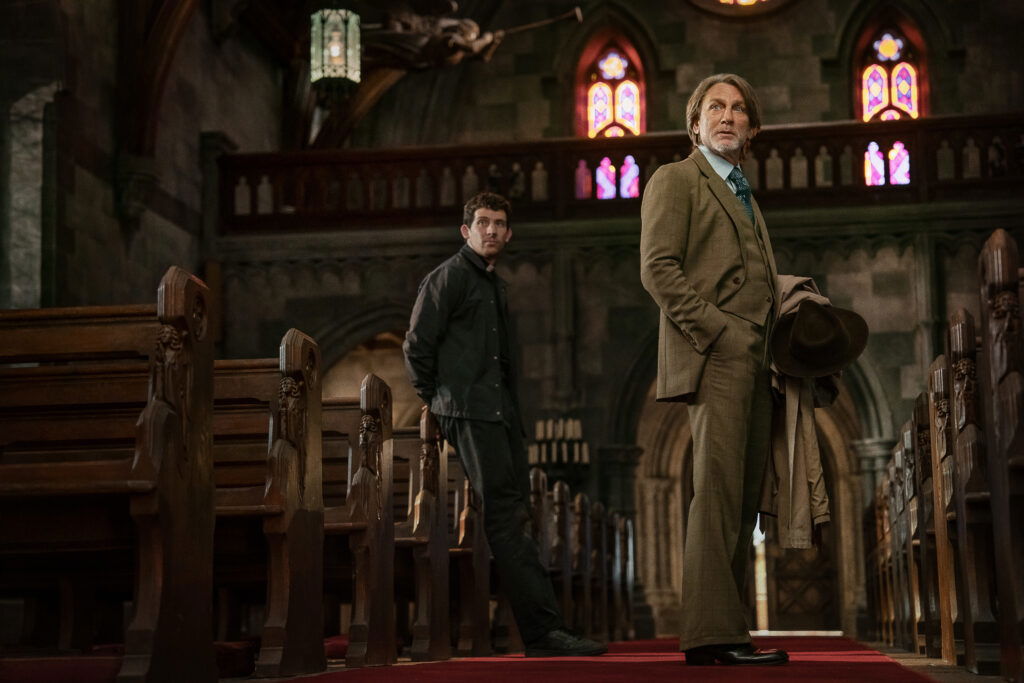
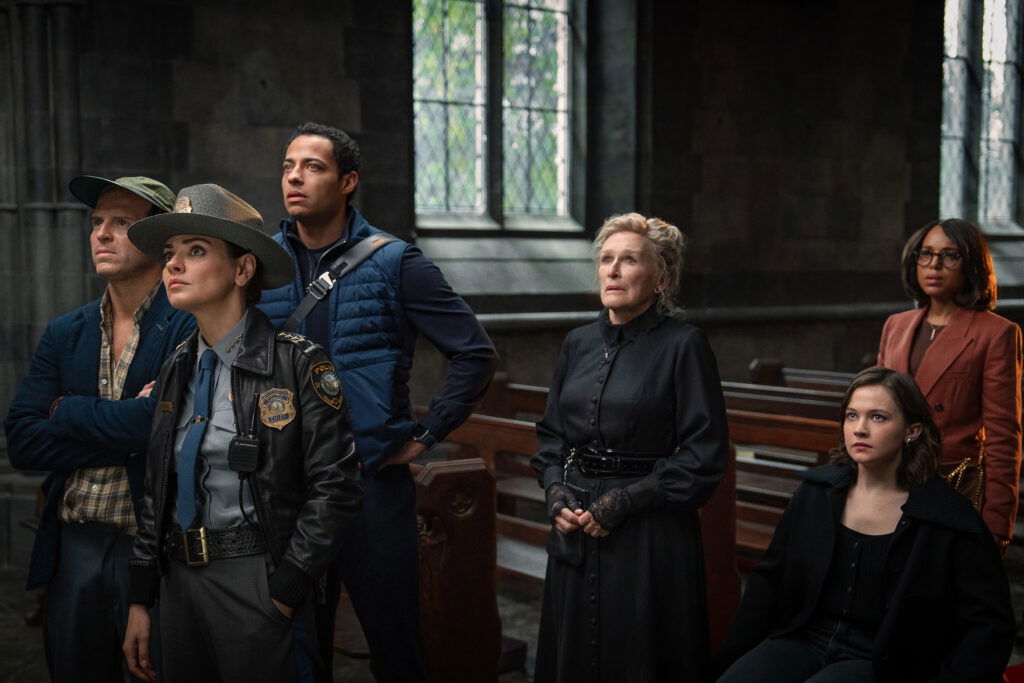
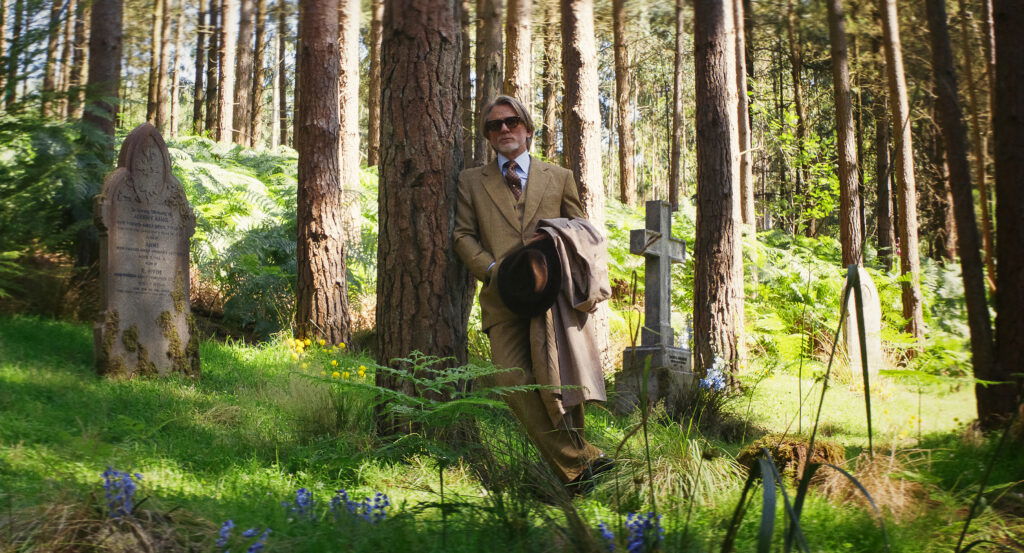
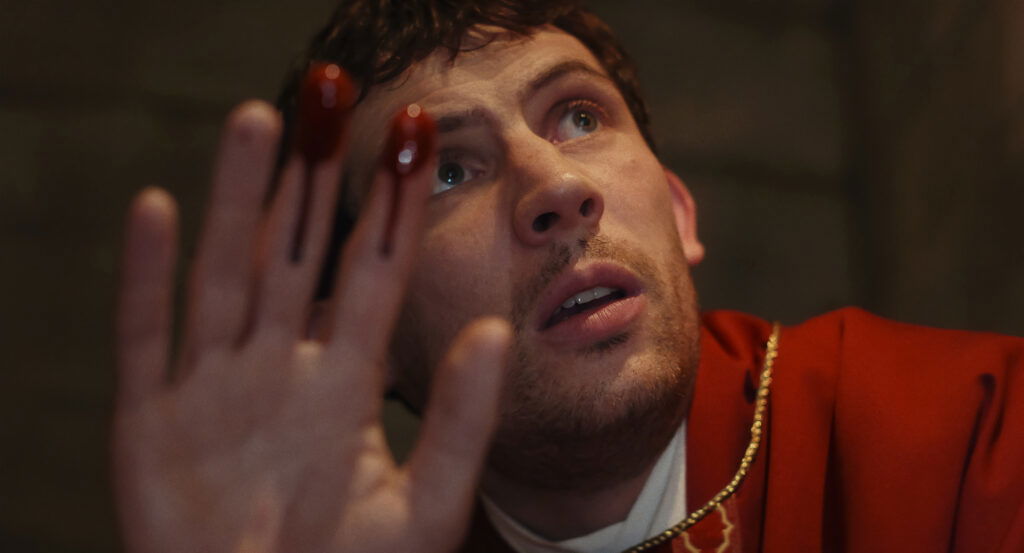
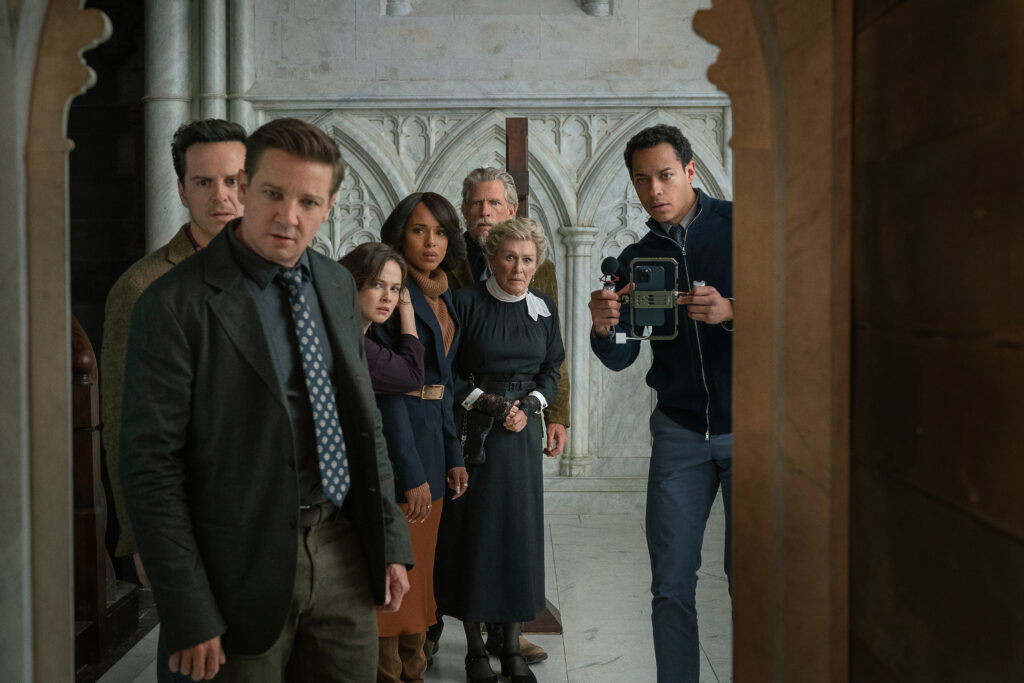

The thematic ambition proves to be a great strength in terms of character work, fitting perfectly with the topics of faith, guilt, and forgiveness. Wake Up Dead Man‘s approach to religion is nuanced and deep, avoiding the ease of simple judgment. Johnson manages to describe the various perspectives on God, sin, and the religious world extensively and in detail, without ever sounding preachy, forced, or contradictory.
The dialogue is authentic because the writing is tailored to the character speaking it. The emotional key of the film lies in the Jud-Blanc pairing, and O’Connor’s performance in this role gave him much more room to showcase his talent than in previous projects. His performance varies with an excellent range of dramatic registers, from moments of impeccable humor, which include perfect timing of swear words, to the more heartfelt and emotional scenes of religious conflict. Personally, I consider O’Connor an absolute surprise, capable of transitioning between the lightness of comedy and emotional introspection with remarkable ease.
In turn, Craig shows up later in the narrative to the point that the movie is so successful in establishing Jud and the church’s eerie environment that I momentarily forgot I w as watching a new Knives Out
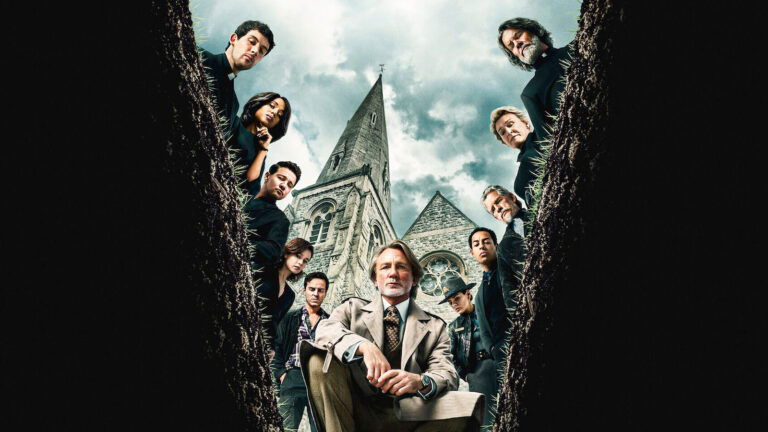
Wake Up Dead Man: A Knives Out Story: What Is the Inspiration Behind the Threequel?
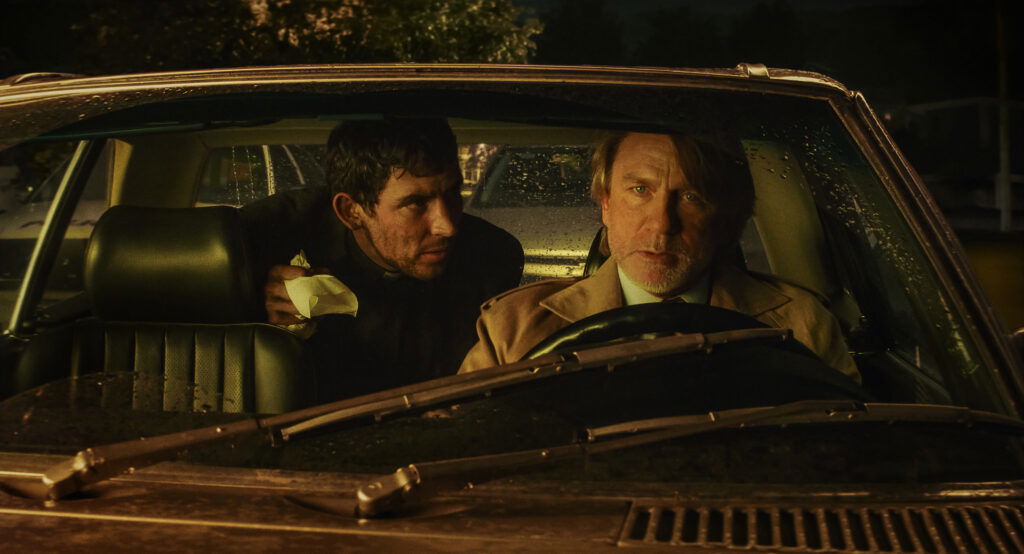
More than just a murder mystery, Wake Up Dead Man is a reflection on the human need to find meaning in a chaotic world and how faith, logic, and absolute certainty compete for that space. Johnson offers a meditation on the nature of belief, whether in religion, science, or the institution of truth itself, criticizing the ease with which faith can be radicalized — through Wicks — and used for personal gain and political division, contrasting it with Jud’s genuine search for redemption and forgiveness. The great merit of the filmmaker is how he refuses to grant victory to one side, treating both perspectives — Blanc’s skepticism and Jud’s deep belief — with equal seriousness and respect, challenging viewers to confront their own assumptions about truth and morality.
Johnson’s genius is also manifested in the complexity of his vast ensemble cast, where every secondary member has a characteristic trait that serves a narrative or thematic purpose. Monsignor Wicks is the center of the tyranny, a charismatic but divisive priest who uses the power of fear and fury to manipulate his faithful congregation for personal benefit, with his death catalyzing the revelation of the evils he harbored. Martha Delacroix (Glenn Close, Fatal Attraction) is the guardian of the status quo and Wicks’ fiercely loyal right-hand woman. She’s the face of firm, unquestioning devotion, which makes her a direct contrast to Blanc’s skepticism. Her presence is vital, as her long history with the church cements the Monsignor’s personal drama, representing the more traditional and perhaps blind side of the faith that sustains Wicks’ corruption.
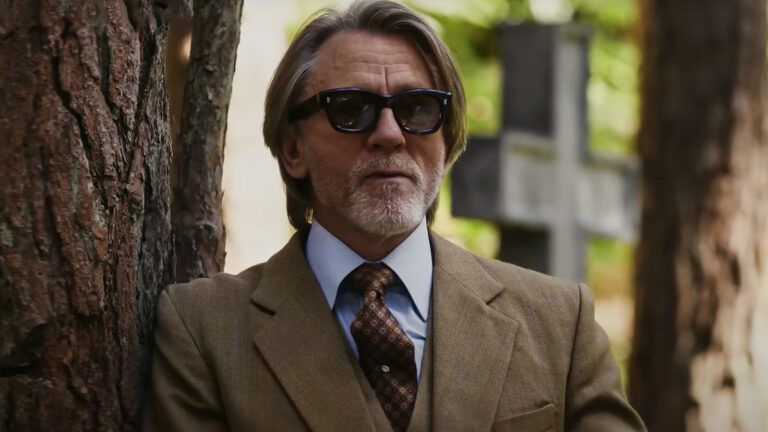
Scandal Actor Confesses What Makes Wake Up Dead Man: A Knives Out Mystery Beat the Prequels
Dr. Nat Sharp (Jeremy Renner, The Hurt Locker) is the personification of vulnerability. His divorce from his wife and his struggle with alcohol have turned him into a lost soul, incapable of expressing himself or holding firm opinions, making him an easy target for Wicks’ manipulative rhetoric. Lee Ross (Andrew Scott, All of Us Strangers) was a talented sci-fi writer who allowed himself to be consumed by the anger and polarization taught by the radical priest, trading art for the toxicity of a destructive purpose.
In this mosaic of corruption, Cy Draven (Daryl McCormack, Good Luck to You, Leo Grande) is a brilliant and timely addition, serving as a satire of digital culture: this aspiring politician uses social media to spread misinformation through clickbait videos and out-of-context conversations, linking religious hypocrisy to modern political gain. The lawyer Vera Draven (Kerry Washington, Django Unchained) carries secret connections within the community that, although discreet at first, prove to be pivotal to the development of the third act.
Despite the depth of most, managing such a large cast carries risks, and it’s hard not to feel that someone like Cailee Spaeny (Simone Vivane, Civil War) is underutilized, despite her character as a former cellist with chronic pain having a rich thematic potential linked to the search for miracles or comfort. Fortunately, Johnson’s script largely manages to ensure that every character detail, even the more superficial ones, serves a purpose.

Despite this mastery in character building, the point where Wake Up Dead Man shows some weakness lies, ironically, in the mechanics of the howdunnit. The writing is incredibly sharp regarding characters and humor — the film gave me several laugh-out-loud moments during the viewing. However, the mystery plot becomes overly convoluted in the third act, and although all the pieces are on the table, the resolution doesn’t present any truly shocking or unforgettable revelation. Instead of moving forward quickly and efficiently, it feels like the movie makes some unnecessary stops and detours, delaying a climax that would have had more impact if delivered with greater rhythm.
The contained framing of the location — feeling like a single-location film, with the action centered in no more than half a dozen spaces — reinforces the gothic and claustrophobic atmosphere. The character dynamics are the undisputed strong point, supported by a score from Nathan Johnson (Looper) that subtly but effectively punctuates and sets the pace. It doesn’t quite reach the level of the original film, but it’s undoubtedly a sequel of its own merit that deserves to be seen.
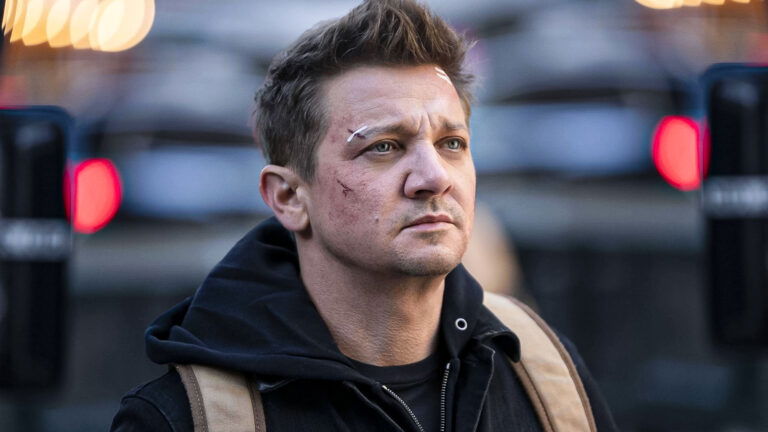
Knives Out: How Wake Up Dead Man Helped Jeremy Renner Heal After His Accident
Is Wake Up Dead Man: A Knives Out Mystery worth watching?
Wake Up Dead Man: A Knives Out Mystery exceeds expectations by diving into a darker register without losing the layers of humor and captivating mystery that define the franchise. The howdunnit mechanics become unnecessarily complex before the climax, but given the brilliance of the whydunnit — exceptional character work and rich thematic exploration — every minute is a valuable experience. The witty banter between Daniel Craig and Josh O’Connor, coupled with the depth of their discussion on what it means to “believe,” is one of many proofs in this sequel that a whodunnit doesn’t need to be perfect to be a resounding success. Rian Johnson offers a worthy continuation of the saga, surpassing expectations by delving into a somber register. The truth may be winding, but in this mystery, faith and forgiveness are the biggest plot twists of all.
Wake Up Dead Man: A Knives Out Mystery releases in theaters on November 26 and on Netflix on December 12.

